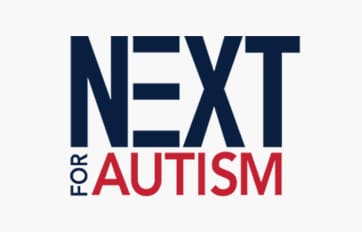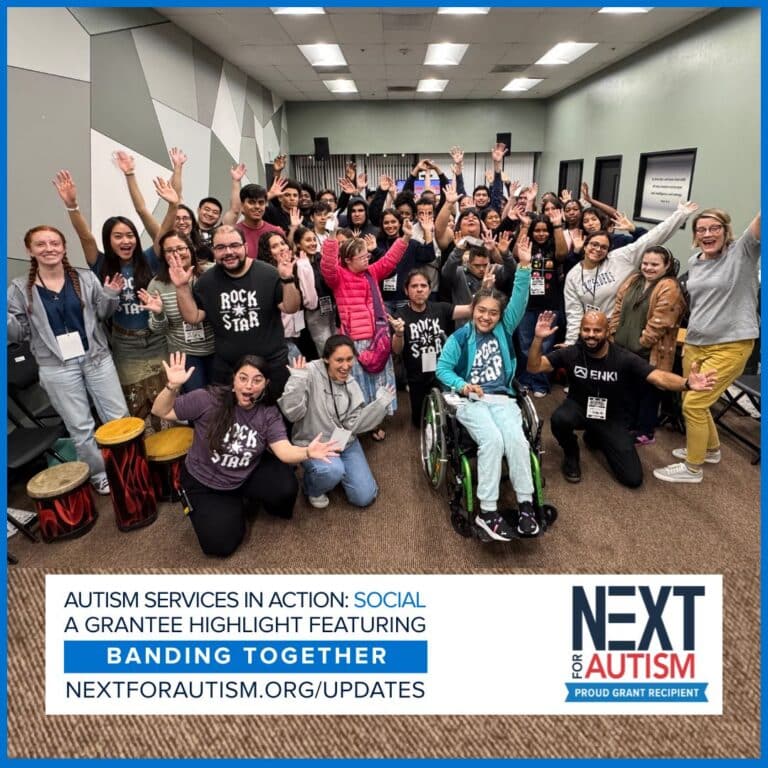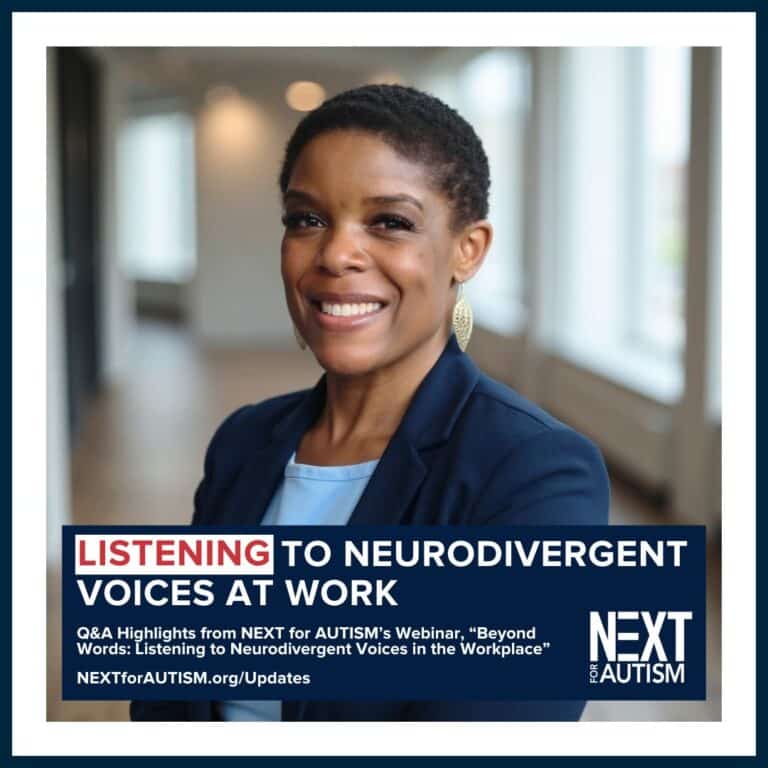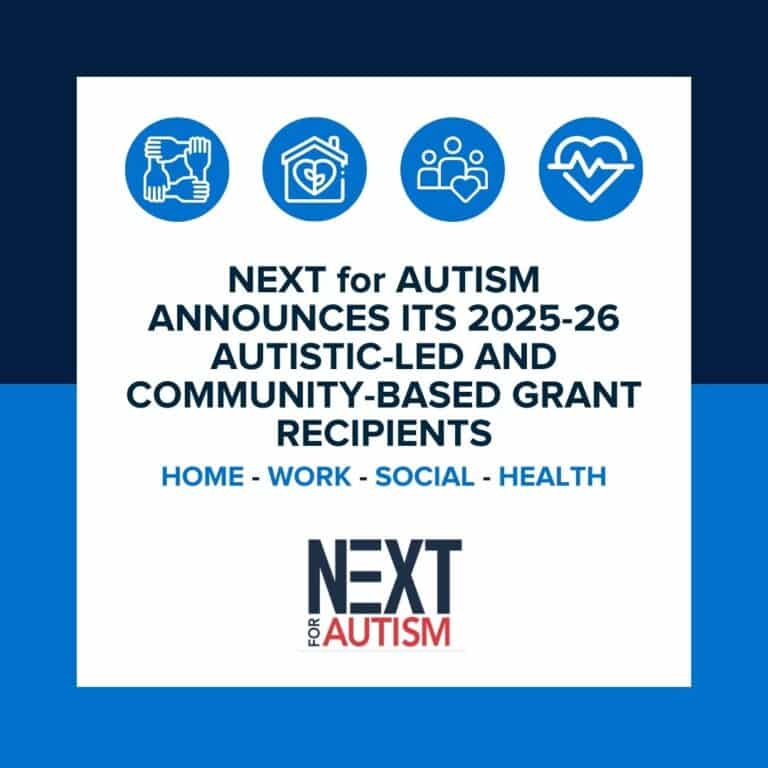Today it’s my honor to introduce you to Christine Lai, an awesome woman who also
happens to be the parent of a child with autism. Christine is open, honest, and incredibly
brave, never shying away from the challenging work of advocating for her son and others
facing autism. Many of us have been touched by this diagnosis, and all of us know someone
who has a loved one with autism. I have been impressed with many non-profits that focus
on autism needs, research, and advocacy, but I was really blown away when Christine
invited me to learn about NEXT for AUTISM last fall. NEXT is a non-profit organization that
strategically designs, launches, and supports innovative programs to improve the lives of
people living with autism. They walk alongside families facing autism as they navigate
education, employment, housing, and relationships. They are hosting a movie screening
tomorrow night in Greenwich, and I very much look forward to attending.
Q&A WITH CHRISTINE LAI, BOARD MEMBER NEXT FOR AUTISM:
What is NEXT for Autism?
NEXT for Autism anticipates what is NEXT for people with autism. Right now, we need high
quality programs, schools and services that will allow our loved ones with autism to lead
meaningful and joyful lives and that’s the heart of the work that NEXT for Autism
does. NEXT’s first program was the New York Charter School for Autism, the first of its kind
in New York State. NEXT’s most recent project is in our own backyard – the Center of
Autism & the Developing Brain (CADB) at New York Presbyterian Hospital in White Plains.
CADB is a place that is near and dear to my family’s heart, as we turned to CADB and Dr.
Catherine Lord in a moment of crisis several years ago.
How does it differ from other autism focused non-profits?
There are amazing research organizations and institutions that focus on the hard science
that relates to autism – the causes of autism, and perhaps, someday, the cure for autism.
There are also amazing national organizations that focus on laws and public policy to
support families facing the challenges that autism presents. They also work to bring
awareness about autism to the forefront of the public consciousness. But what NEXT for
Autism does is create programs that help individuals & families with autism right now. NEXT
has pioneered job programs, teacher training, and after school programs that have been
incubated in New York and serve as next generation prototypes for what should exist
everywhere.
Why is it important that we think about life-long programming for those with
autism?
Children with autism become adults with autism. A few years ago, I was talking to a lawyer
about my son and the first question he asked me was “What are your dreams for him?” I
started crying – no one had ever asked me that before. As our typical children grow and
move towards adulthood, what do we want for them? We want them to live independently
and have a fulfilling life with friends and a job and activities that spark their interest. For our
children on the spectrum, we want the same things.
As a parent of a child with autism, what are some of the greatest challenges?
One of the most difficult things that I’ve had to deal with as a parent is the idea of missed
milestones. Last year I sent emails apologizing to a couple of old friends – we had been
close when our children were small, during the period when my husband and I were trying
to figure out how to help our son. During that time, it was painful for me to watch their
children growing and meeting milestones while we struggled with school and socialization
and language and all the other things you struggle with. So I let some friendships go and I
regret that. And it took me ten years to apologize for not being able to let them support me
through that time. My friends were lovely and supportive and understanding, but you can’t
go back and do it over as much as you might want to.
What can others do differently to be better friends to families with autism?
That’s a great question. One thing that we can all do – which is terribly hard in these
judgmental days – is to try not to be so judgmental of other parents. I can’t tell you how
many dirty looks I’ve fielded in how many stores or museums or parks when my child hasn’t
been quote-unquote “behaving.” My son used to hate the sound of hand dryers in
bathrooms. And when I say hate, I mean “run away screaming at the top of his lungs.” To
the casual observer, he might look like the worst behaved child in the world when all he was
trying to do was get away from a sound that, for him, was like being stabbed in the
eardrums.What is the movie preview coming up?
On October 17 th , NEXT for Autism will present a special screening of the HBO
documentary “How to Dance in Ohio” at Greenwich Country Day School. “How to Dance in
Ohio” follows a group of young people on the spectrum as they prepare for a spring formal
dance. It’s a beautiful film, a look at three young women transitioning to adulthood, and
exploring the beginnings of love and relationships as they struggle to navigate the complex
social rules and universal feelings of suspense, hurt, and excitement that come with a first
date and a first prom.
After the film, David Remnick – editor of the New Yorker – will moderate a panel discussion
with filmmaker Alexandra Shiva as well as autism advocates Liane Carter and other
representatives of NEXT. I’ll be on the panel as well, as a board member of NEXT and a
mother of a child on the spectrum.
How else can others support NEXT?
Besides the movie screening on October 17 th at GCDS, another great way to support NEXT
for Autism is Night of Too Many Stars, hosted by NEXT board member Jon Stewart at
Madison Square Garden on November 17 \th in partnership with HBO. Night of Too Many
Stars was created by NEXT board member Robert “Triumph the Insult Comic Dog” Smigel
and, since 2006, has raised over $24 million to support our mission of providing “what’s
NEXT” for people on the spectrum. Night of Too Many Stars allows us to support our own
pioneering work, AND to give grants to programs around the country that support people
with autism and their families.








Leave a Reply